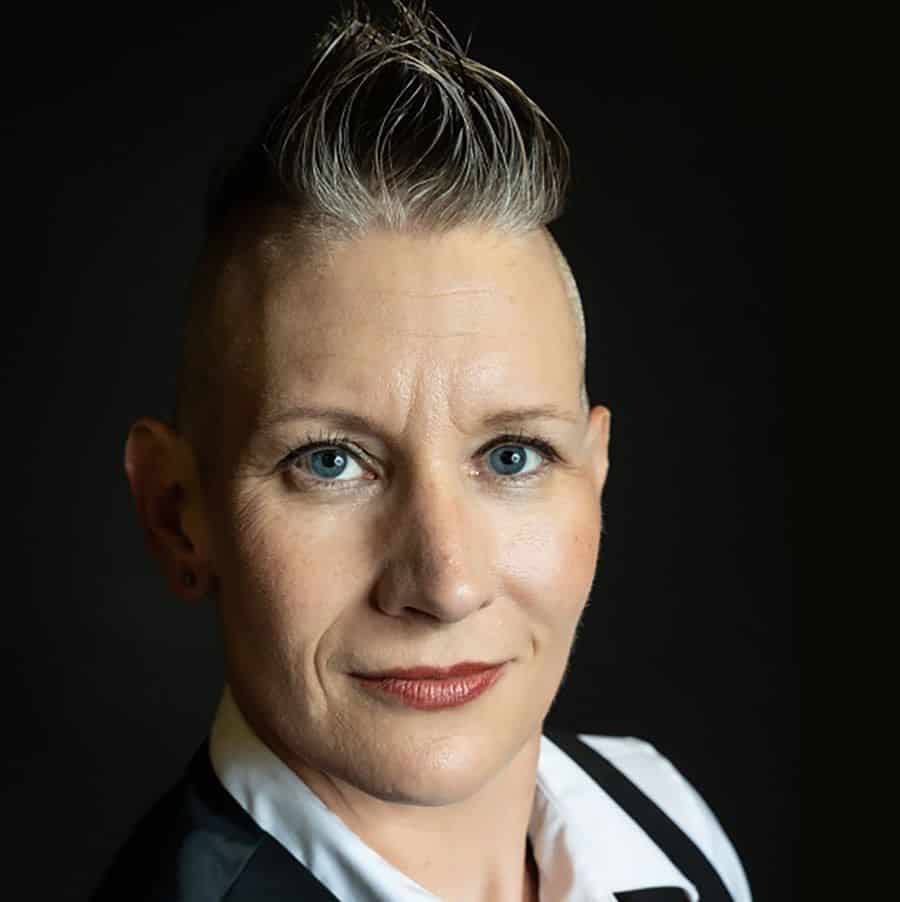Try these tips for crafting effective emails from renowned marketing expert Nancy Harhut.

Table of contents
Lawyers are professional communicators, constantly exchanging emails with clients, opposing counsel and other contacts. We battle for attention in others’ overflowing inboxes, hoping that our messages get opened and prompt the desired response.
At Content Marketing World 2021, I learned valuable tips for upping my email game from HBT Marketing Chief Creative Officer and renowned marketing expert Nancy Harhut (@nharhut). Her specialty is blending best-of-breed creative with decision science to prompt responses. Nancy’s talk, “15 Email Mistakes You Don’t Even Know You Make — And How to Fix Them Fast,” was geared toward newsletters, but the information also works for everyday emails.
Crafting Effective Emails — Lessons From the Expert
Here are some of Nancy’s lessons that I’ve already applied to my law practice:
1. Enclose the first few words of the email’s subject in brackets.
This increases the open rate. For some of my clients, I’ve started using “[Response Needed]” at the beginning of the subject line so it will stand out in their inbox.
2. Use the word “because.”
This word is an automatic compliance trigger. The reader is likely to assume whatever you’re saying is logical and accept it.
3. Use the word “you.”
Focus on the reader and what’s in it for them. We frequently need information or documents from our clients. When I find myself starting a sentence with “I need,” I think about how I might rephrase it to focus on the client’s perspective or desired outcome.
4. Start a sentence with “don’t miss.”
People are two times more motivated to avoid loss than to achieve positive gains. Starting a sentence with “don’t miss” will tap into this motivation.
5. Rhyme it!
A rhyme is memorable. Remember, “If it doesn’t fit, you must acquit” from the O.J. Simpson trial? This tactic can work for you too. I haven’t found a way to integrate rhymes into my day-to-day emails, but I’m more cognizant of opportunities. And I used RhymeZone to name a reoccurring section of my soon-to-be resurrected newsletter.
6. Keep proofreading.
This should go without saying, but the last tip in Nancy’s talk was to proofread your emails before they go out. If your email has spelling or grammar mistakes, the recipient will question what else you’re doing wrong. My litigation partner will read the draft of an email out loud three or four times before sending it. Sometimes this tries my patience, but I respect that it’s better to triple-check that everything is correct than it is to send an email with an irreparable error.
Crafting Effective Emails: Nancy’s Harhut’s Advice for Lawyers
Nancy made time in her busy schedule to field some questions about how we can be more effective in our emails.
Lawyers frequently have to explain complicated legal concepts to clients who don’t know much about the law, like when providing an update on their dispute or presenting their case options. How can we do this more effectively? Is there a way to do this without writing a novel-length email of explanations?
Nancy Harhut: Take the time to simplify things. Remember the old quote, “I’m sorry I wrote you such a long letter. I didn’t have time to write you a short one.” Don’t be that attorney.
Even complicated concepts can be broken down and made more understandable by minimizing acronyms, jargon, technical terms and large words.
Behavioral scientists have found that people prefer things that are easier to think about and understand. People not only prefer them, they also believe they’re more truthful and feel more confident making a decision about them. So, it can pay off to word things in a way that people can understand. Additionally, a 2012 study by Christopher Trudeau that involved legal communications found that the more educated a person is, the more they prefer plain language.
Lawyers regularly send emails to opposing counsel in contentious situations. How can a lawyer better convey a sense of confidence in their correspondence?
NH: Focus on the facts. Avoid phrases such as “I feel” or “I think,” which sound less definitive. And remember that sometimes less is more.
Lawyers have a reputation for being stuffy, conservative, narcissistic, ambulance-chasing jerks. What should lawyers do to demonstrate that this stereotype does not apply to them?
NH: Oh, dear, that’s quite a reputation. To combat it, use language that’s more colloquial and accessible. Write an email the way you might speak to a friend or a friendly colleague. Be empathetic. Be client-focused. And be genuine (assuming genuine for you is not stuffy, boring, conservative or narcissistic!).
It can also be helpful to acknowledge how the other person is likely feeling, to show you understand what they’re going through.
What is your parting advice to lawyers about what they should be doing with their emails?
NH: All professionals should write emails that communicate clearly. If those emails are marketing-focused, emphasize what’s in it for the client — how you can help them with solving their problem or achieving their goal. Include a clear call to action, or specific next steps. And be human. Attorneys can be intimidating. And often the matters they deal with can be difficult ones for a client. Keep that in mind when writing.
Many thanks to Nancy Harhut for sharing her wisdom with the Attorney at Work community. Share her tips with your team, and if you get the chance to see her speak live at an industry event, don’t miss it!
Image ©imagezoo.com
Also on Attorney at Work:
“10 Habits for Successful Email Communication” by Mark Palmer
“Five Things to Stop Doing With Business Emails” by Laura Ernde
“Client Communications Checklist for Law Firms” by Danielle Flagg
Subscribe to Attorney at Work
To get really good ideas every day for your law practice, subscribe to the Daily Dispatch newsletter.
















